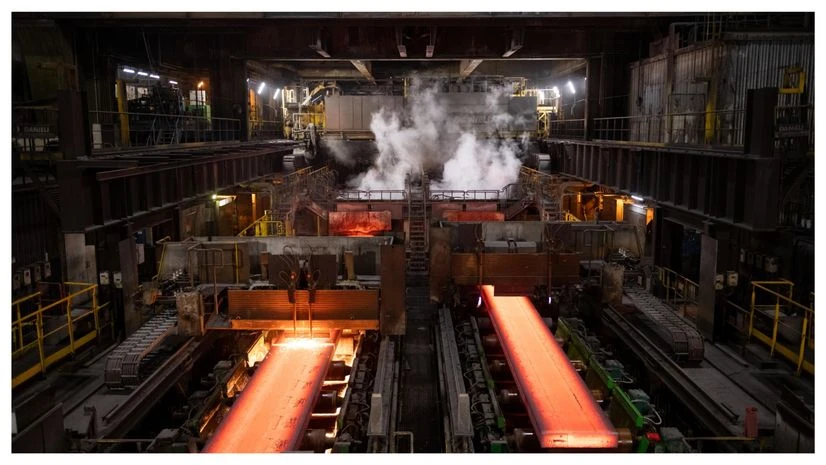By Thomas Biesheuvel
ArcelorMittal SA said exports from China left the steel market in an unsustainable position, as the world’s biggest producer outside of the Asian country reported a fall in second-quarter profit.
Steel producers in the US and Europe are being squeezed between a fresh wave of cheap imports and anemic demand that’s pushing prices lower. The company cut its forecast for apparent consumption of steel outside of China — a key barometer of the world economy.
“Current market conditions are unsustainable,” ArcelorMittal said in a statement on Thursday. “China’s excess production relative to demand is resulting in very low domestic steel spreads and aggressive exports; steel prices in both Europe and US are below the marginal cost.”
A fresh surge in steel exports from Asia — and especially China — has the potential to become a political flashpoint in the West and was a key campaign issue when Donald Trump first ran for president.
Also Read
China’s economy has performed unevenly this year, with manufacturing at times a bright spot while consumption has been weighed down by a prolonged real estate crisis. That’s propelled China’s trade surplus to a record high as exports have surged.
The US and European Union — two of China’s biggest export markets — are erecting new trader barriers after accusing Beijing of using state subsidies to build excess industrial capacity.
While Europe has deployed tariffs to target Chinese exports, the global steel trade is often seen as a game of whack-a-mole; if exports are blocked in one market, the action shifts elsewhere, dragging down prices across the board.
The surge is exports has come as demand for steel is growing more slowly that ArcelorMittal had expected. The company lowered its forecast for apparent consumption of steel outside of China to between 2.5 per cent and 3 per cent this year. It had originally expected demand to grow as much as 4 per cent this year.
Steel consumption in China could even contract, according to ArcelorMittal, which lowered its 2024 forecast to a range of -1 per cent to +1 per cent.
The company reported second-quarter earnings before interest, taxes, depreciation and amortisation of $1.86 billion, down from both the first quarter and the same period last year, but ahead of analysts estimates.

)